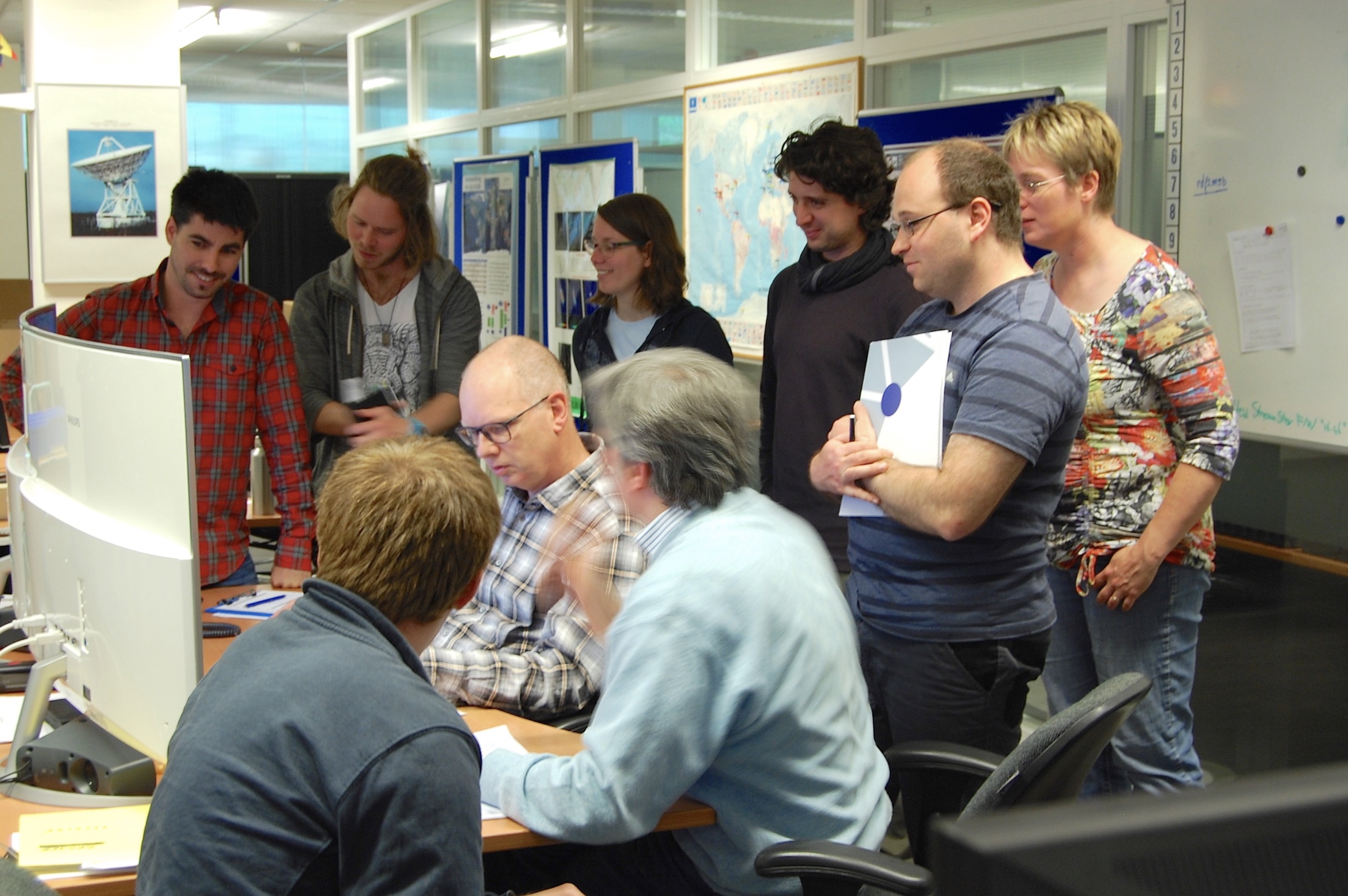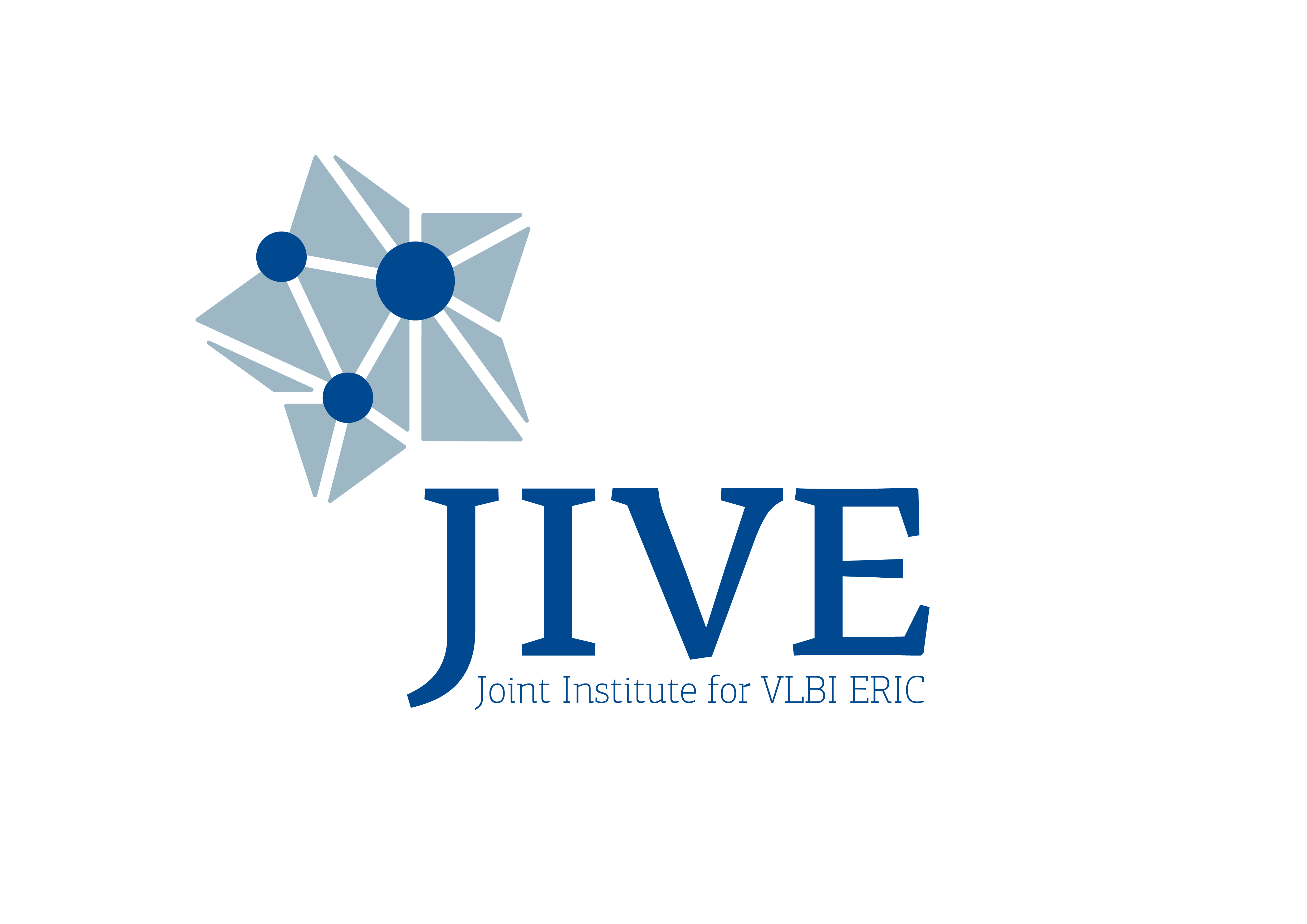
On 11 May 2022, JIVE organises the first online EVN Users' Training Event with the aim to support first-time users of the network. EVN Support Scientists will guide participants through the different steps to allow them to prepare and submit an observing proposal as well as the scheduling of observations. Participation on the webinar is free for everyone but registration is mandatory.
The training will be divided in two sessions (see below the programme) that could be attended independently:
- The Proposal Preparation Training assumes no prior knowledge of using the EVN or any other VLBI experience, so it may be of interest to the broader astronomical community.
- The Schedule Preparation Training aims to provide an introductory guide on how to schedule EVN observations.
In addition to learning all about proposal preparation and EVN scheduling, the training would be a great opportunity to ask and participate in discussions with the EVN Support Scientists. During the Event there will also be a Mattermost channel that will remain active after the event for direct contact with the EVN Support Scientists.
The webinar will be organised through the Zoom platform and it is free but mandatory to register to participate. Find more information on the training and how to register on the EVN website.
Programme
Wednesday 11 May 2022 10:00-12:00 CEST (08:00-10:00 UTC)
Proposal Preparation Training
Are you interested in applying for EVN time to study your astronomical sources but you have many doubts and questions? Join this training! EVN Support Scientists will go through all required steps and discuss what you need to do and how.
This training will be divided on the following parts:
- Introduction to the EVN
We will provide a global introduction to the EVN, the science that can be done with it, the observing modes that you can use, and the Support+ mode so any astronomer can get EVN images of their favourite targets.
- How to make a proposal
Learn all you need to know about how to prepare and submit an EVN proposal. From how to get the inspiration on how EVN observations can be useful for your targets, how to prepare the scientific and the technical justification. We will show you where you can find all the relevant information and how to submit the proposal through Northstar. And what to expect afterwards.
- Using the EVN Observation Planner
Either if you want to quickly check what you would achieve with an EVN observation on your target, when this can be observed, or find for how long you will need to observe the target to achieve your goals, this is your online tool.
Wednesday 11 May 2022 14:00-15:00 CEST (12:00-13:00 UTC)
Schedule Preparation Training
Did you already get observing time with the EVN but you are not sure how to produce a schedule file? Here we will explain to you how to schedule an EVN observation!
In this part EVN Support Scientists will cover:
- Introduction to scheduling EVN observations
What is needed to schedule an EVN observation? What data and information will we require from you?
- Using pySCHED
pySCHED is the programme that you will need to use to create an EVN schedule. Learn about its basics.
- Creating a schedule file
Learn all information you need to include in your schedule file and how to set up your observation.
- Running the schedule and checks to perform
Once you run your schedule file through pySCHED, you will get some output that would tell you relevant information that you should verify. We will help you here to understand these outputs.
Additional information
The European VLBI Network (EVN) is an interferometric array of radio telescopes spread throughout Europe, Asia, South Africa and the Americas that conducts unique, high-resolution, radio astronomical observations of cosmic radio sources. Established in 1980, the EVN has grown into the most sensitive VLBI array in the world, including over 20 individual telescopes, among them some of the world's largest and most sensitive radio telescopes. The EVN is composed of 13 Full Member Institutes and 5 Associated Member Institutes.
The Joint Institute for VLBI ERIC (JIVE) has as its primary mission to operate and develop the EVN data processor, a powerful supercomputer that combines the signals from radio telescopes located across the planet. Founded in 1993, JIVE is since 2015 a European Research Infrastructure Consortium (ERIC) with seven member countries: France, Italy, Latvia, the Netherlands, United Kingdom, Spain and Sweden; additional support is received from partner institutes in China, Germany and South Africa. JIVE is hosted at the offices of the Netherlands Institute for Radio Astronomy (ASTRON) in the Netherlands.
Contact
Benito Marcote
JIVE Support Astronomer
Joint Institute for VLBI ERIC (JIVE)
marcote@jive.eu
Zsolt Paragi
EVN Programme Committee Chair
JIVE Head of User Support
paragi@jive.eu
Jorge Rivero González
JIVE Science Communications Officer
rivero@jive.eu
